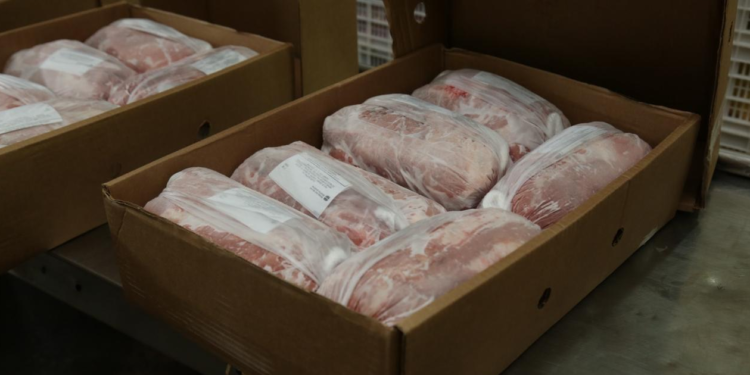The depreciation of RMB against the US dollar affects the imported beef futures market, and the price war quietly opens

With Trump's election, the possibility of a new trade war between China and the United States has increased significantly, which not only has a profound impact on the global economic structure, but also directly affects China's exchange rate market. Recently, the fluctuation of RMB exchange rate against US dollar has become the focus of market attention, and its trend has had a significant impact on imported beef futures market.

According to market sources, in the face of the threat that the United States may further escalate tariffs, market speculation that the weakening of the renminbi may become one of China's bargaining chips in negotiations. That expectation has caused the dollar to rise 2 per cent against the renminbi over the past month and to approach its nominal peak for the year at one point last week.
Exchange rate fluctuations directly affect the cost of imported beef. South American beef traders in China said the strengthening of the US dollar had somewhat dampened activity in the beef import market. They expect beef transaction prices to fall in the coming days, but market uncertainty is increasing.
In Brazil, the head of an export company admits the situation is "complex". Due to the continuous increase in the price of live cattle in Brazil, their factory did not even have live cattle to slaughter for a week. Therefore, Brazil has not offered any offer to the China market because it has been sold short and the slaughter plan has not yet been completed. At the same time, the export price of Brazilian beef has also risen, and some factories have reported new goods at the CIF price of US $5900/ton.
The situation in Uruguay is equally grim. Although last week's market reference price was relatively flat, exporters pointed out that the downward trend in transaction prices would result in their profits being "almost zero." They say the market is relatively stable at the moment, but future trends remain uncertain.
Argentina's market is showing a "more seesaw" situation. Traders said trading slowed as terminal beef prices in China's domestic market had not yet risen. They expect a wave of beef price increases in China ahead of the China New Year. However, although the cow six cuts are quoted below $5000/ton, overall supply is insufficient and China buyers are still trying to drive down prices.
In addition, reference prices for beef transactions in South American countries such as Chile and Bolivia also rose. According to the weekly market report of domestic logistics platform OIG+X, beef prices continue to rise, but the pace of transactions is still slow. Some Brazilian factories have even raised their bids, with prices for most cuts rising by $100-$200 compared with the previous week. The prices of Argentine and Uruguayan products remained basically stable, with some parts of meat rising by US $100/ton.
In the face of this situation, most importers consider the trade of new goods "high risk" and adopt a wait-and-see attitude. They said they would closely monitor currency movements and South American beef supplies to make smarter purchasing decisions.
-

Ecuadorian Shrimp-It's Not Easy To Love You
2024-07-04 -
The AI Lecture of Zhanjiang Chamber of Commerce was successfully held in Quanlian Centralized Procurement, helping the enterprise to upgrade its digital intelligence
2025-04-18 -
Tilapia Tariff Raised to 45%, U.S. Market Waiting for Change
2025-04-02 -
Into the Northwest Frozen Food Hub| All-Union Centralized Procurement Visits Lanzhou Jiaojiawan Frozen Market
2025-03-07 -
China's Ministry of Commerce's latest response to the US imposition of a 10% tariff on Chinese exports to the United States
2025-03-04 -
Ecuador shrimp industry new era, 2024 top ten shrimp enterprises list announced
2025-02-26













